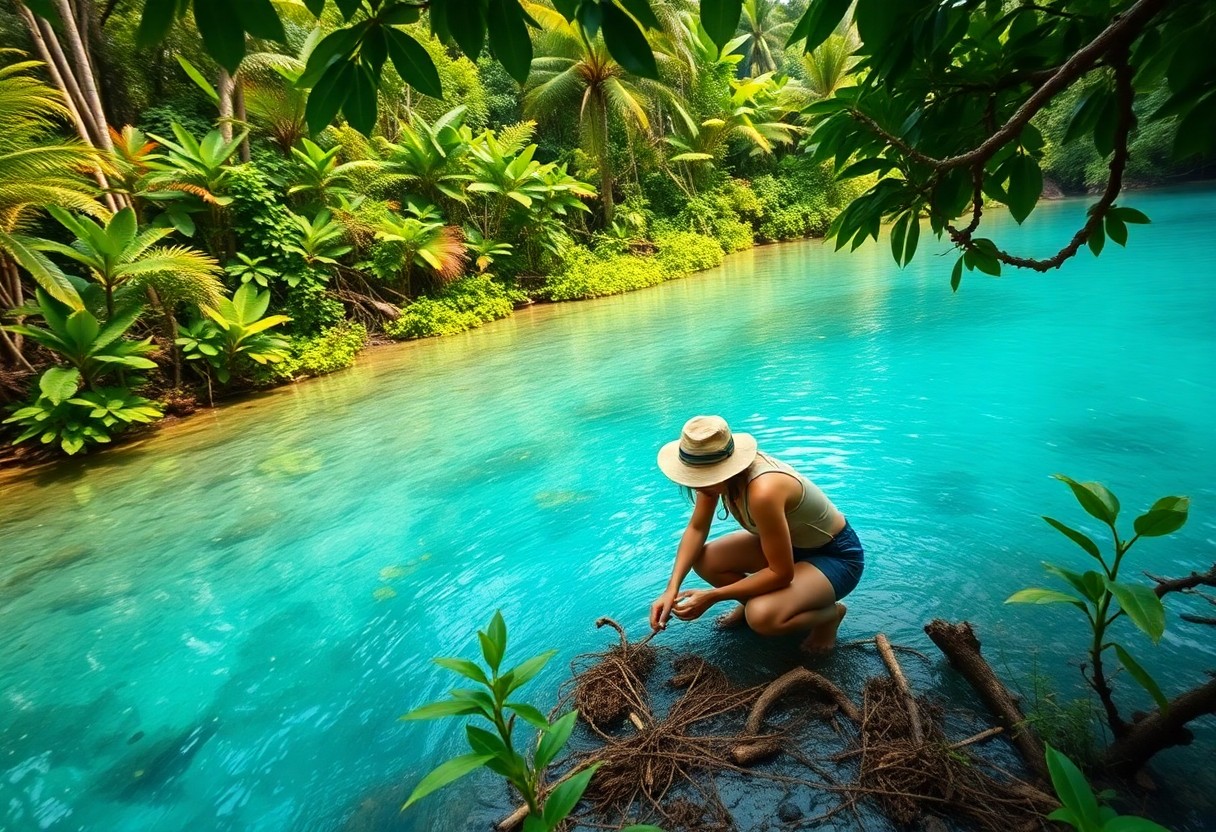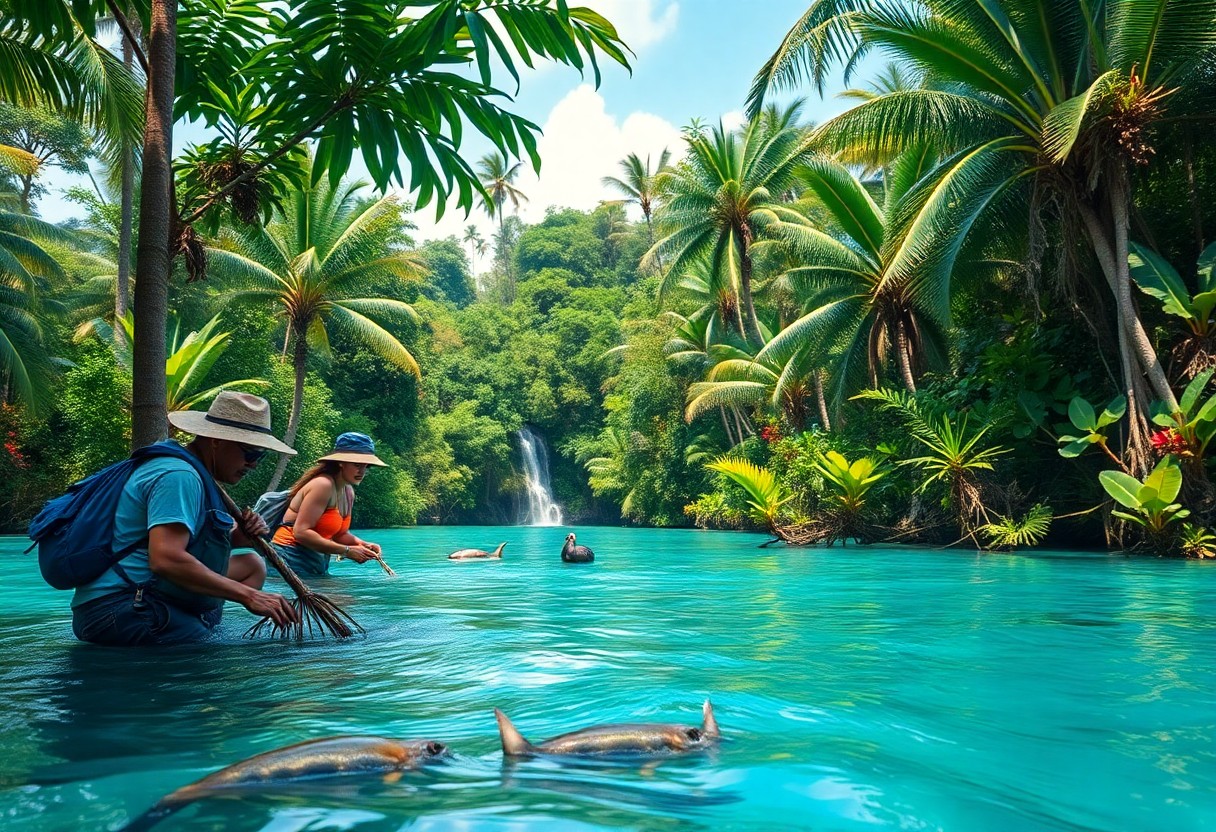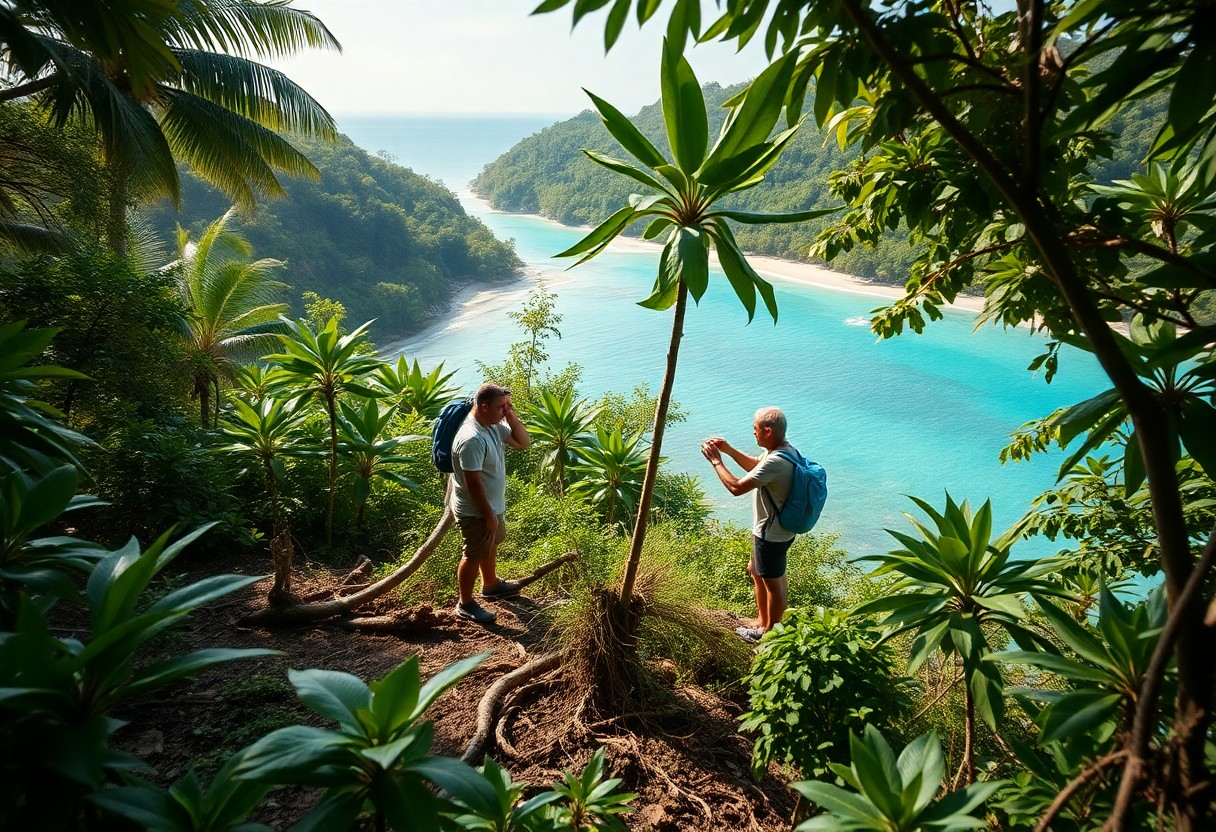For travelers seeking an eco-conscious destination, Belize is a premier example of environmental conservation. When you visit this enchanting Caribbean paradise, you’ll discover a nation where over 40% of its land is allocated as protected areas. From the awe-inspiring second-largest barrier reef in the world to the ancient forests of the Maya civilization, your journey through Belize fosters a commitment to sustainable tourism initiatives. You will witness firsthand how your travel decisions can create a positive impact, as Belize effectively balances the expansion of tourism with essential environmental conservation efforts. This unique approach makes it the perfect location for your next responsible adventure.
Discover the Innovative Sustainable Practices Fueling Belize’s Environmental Leadership
Before immersing yourself in Belize’s strong commitment to sustainability, it’s crucial to explore the diverse range of initiatives that position this nation as a leader in eco-friendly practices. From dedicated marine conservation initiatives to pioneering renewable energy projects, these efforts illustrate Belize’s steadfast dedication to preserving its natural heritage. The breadth of these programs varies, yet they collaboratively contribute to the safeguarding of this Caribbean gem, ensuring its pristine ecosystems are maintained for future generations to enjoy.
| Initiative Type | Impact Area |
|---|---|
| Marine Conservation | Barrier Reef Protection |
| Forest Preservation | Maya Forest Corridor |
| Renewable Energy | Solar and Hydro Power |
| Sustainable Tourism | Eco-lodges and Tours |
| Waste Management | Recycling Programs |
Explore Transformative Conservation Programs in Belize
If you’re passionate about making a difference, Belize’s conservation initiatives will undoubtedly inspire you. These meticulously designed programs protect over 40% of the nation’s territory, safeguarding the globally recognized barrier reef and pristine rainforests. By choosing to visit Belize, you play an active role in supporting these essential preservation efforts, contributing to the ongoing fight against environmental degradation and championing sustainable practices in this breathtaking region.
Embracing the Future: Renewable Energy Innovations in Belize
The transition to sustainable energy solutions in Belize is paving the way for a cleaner, more environmentally-friendly future. The nation aims for 85% renewable energy adoption by the year 2030, harnessing both solar and hydroelectric power sources. These ambitious targets highlight Belize’s dedication to lowering its carbon footprint and fostering a sustainable energy framework.
As you traverse Belize, you’ll see how innovative energy projects, including solar installations that power remote communities and hydroelectric facilities supplying clean energy to urban settings, are transforming the nation’s energy landscape. These initiatives not only reduce carbon emissions but also help preserve the breathtaking beauty of Belize’s natural environment, illustrating how sustainable practices can coexist with ecological integrity.
Key Elements Fuelling Sustainability Efforts in Belize
Despite various environmental challenges, several key factors are driving Belize’s sustainability initiatives. These include comprehensive government policies focused on environmental protection, proactive community involvement, and collaborative international partnerships. Belize’s geographical uniqueness, characterized by the Mesoamerican Barrier Reef and extensive rainforests, significantly shapes its conservation strategies. By understanding these driving forces, you can gain a deeper appreciation for Belize’s commitment to safeguarding its invaluable natural resources.
- Protected Areas Management
- Sustainable Tourism Practices
- Marine Conservation Efforts
- Renewable Energy Initiatives
How Government Regulations Promote Environmental Sustainability
A comprehensive framework of environmental policies underpins Belize’s sustainability objectives. Grasping these regulations will help you understand how the country effectively protects its biodiversity hotspots and rich marine ecosystems. The government’s pledge includes ensuring that 40% of land remains protected while enforcing strict development guidelines along coastal areas. These policies exemplify Belize’s commitment to harmonizing progress with conservation, setting a benchmark for sustainable development.
Engaging Local Communities to Foster Sustainable Practices
While regulatory frameworks are crucial, true sustainability hinges on the active participation of local communities. You’ll discover how residents are involved in conservation projects and sustainable tourism activities. Your presence in Belize bolsters these grassroots initiatives, which range from community-managed protected areas to local eco-tourism ventures, emphasizing the importance of collaboration between visitors and local residents.
The effectiveness of Belize’s sustainability initiatives is deeply rooted in its people. You’ll observe local communities taking charge of conservation initiatives, from protecting endangered species to preserving traditional sustainable practices. Your interactions with these communities not only support their economic development but also help maintain their rich cultural heritage. This community-driven approach guarantees that conservation efforts yield lasting benefits for both the environment and the local population.

Your Comprehensive Guide to Practicing Sustainable Tourism in Belize
One of the most impactful ways to enhance Belize’s conservation efforts is by engaging in responsible tourism practices. Your travel choices can greatly influence the preservation of this natural wonderland, ensuring it thrives for future generations to experience.
| Pre-Trip Planning | Choose eco-certified accommodations, use reef-safe sunscreen, and bring reusable water bottles. |
| During Your Stay | Support local businesses, conserve water, and participate in conservation activities. |
Designing an Eco-Conscious Journey to Belize
Consider planning your trip to Belize during the off-peak season (from May to November) to alleviate the pressure of tourism on local resources. Your travel plans should emphasize accommodations that implement water conservation practices and harness renewable energy. Research indicates that eco-friendly hotels in Belize consume up to 60% less energy than traditional lodging, significantly reducing overall resource consumption.
Implementing Responsible Travel Guidelines for a Sustainable Experience
Establishing clear guidelines is vital for protecting Belize’s fragile ecosystems. When exploring the barrier reef, it’s essential to maintain a respectful distance from coral formations to prevent damage to these essential habitats. Your actions directly influence the preservation of marine life and the welfare of local communities.
Your travel choices play a critical role in the delicate environment of Belize. By supporting local guides committed to sustainable practices, using public transportation, and selecting tours with smaller group sizes, you can contribute to the conservation of Belize’s natural heritage while enjoying genuine experiences that deepen your connection to this incredible destination.

Uncovering Eco-Friendly Accommodation Options in Belize
Despite the growth of the tourism sector, Belize remains steadfast in offering eco-friendly lodging. Visitors can select from a variety of accommodations that seamlessly blend luxury with sustainability, ranging from beachfront cabanas to tranquil jungle lodges. These properties actively minimize their carbon footprint through sustainable practices like solar power utilization, rainwater harvesting, and organic waste composting systems.
Experience Eco-Resorts and Lodges Dedicated to Environmental Sustainability
Many travelers may not realize that Belize boasts some of Central America’s most forward-thinking eco-resorts. With over 30 certified eco-lodges throughout the country, each offers unique experiences while protecting the environment through sustainable practices, such as utilizing renewable energy, supporting local communities, and maintaining wildlife corridors.
Comprehending Green Certification Standards for Eco-Friendly Accommodations
Any lodging advertising itself as eco-friendly in Belize must comply with rigorous certification criteria. You’ll find properties certified by reputable organizations like Green Globe and Rainforest Alliance, ensuring your stay contributes to sustainable tourism practices and environmental conservation efforts.
To gain certification, lodges must demonstrate their commitment through measurable actions. Your chosen accommodation must meet specific criteria in vital areas such as water conservation, energy efficiency, and waste management. The certification process involves regular audits and updates, ensuring an authentic eco-friendly experience during your stay in Belize.

Crucial Tips for Supporting Local Conservation Efforts in Belize
Help sustain Belize’s natural heritage by adhering to these essential guidelines during your visit:
- Select eco-certified accommodations
- Support local conservation projects
- Buy from local artisans
- Utilize reef-safe sunscreen
- Participate in beach cleanup initiatives
Every contribution, no matter how small, plays a significant role in preserving Belize’s remarkable biodiversity for future generations, ensuring that this ecological paradise remains intact.
Engaging in Responsible Wildlife Observation in Belize
Experiencing Belize’s diverse wildlife requires both respect and patience. Always maintain a safe distance from animals, avoid feeding them, and refrain from disturbing their natural habitats. Some of the premier wildlife viewing opportunities are at the Cockscomb Basin Wildlife Sanctuary, home to jaguars and over 300 bird species. Your guide will assist in following proper wildlife observation protocols, ensuring both your safety and the well-being of the animals.
Participating in Cultural Preservation Activities for a Richer Experience
The intricate connection between wildlife and culture is a defining feature of Belize’s heritage. You can support local communities by joining traditional craft workshops, attending cultural festivals, and exploring Maya archaeological sites. These engaging activities not only provide economic benefits to local communities but also help preserve their cherished traditions.
Supporting local cultural initiatives extends beyond tourism experiences. By participating in community-led tours, purchasing genuine handicrafts, or learning traditional cooking techniques, you become an integral part of preserving Belize’s rich cultural narrative. Your involvement fosters sustainable income for local families and encourages younger generations to uphold their ancestral customs.
Weighing the Benefits and Challenges of Sustainable Tourism in Belize
As you plan your visit to Belize, understanding the implications of sustainable tourism is vital. This balanced approach to travel affects both visitor experiences and local development, creating a foundation for responsible exploration of Belize’s stunning natural attractions.
| Pros | Cons |
|---|---|
| Environmental preservation | Increased travel costs |
| Local economic growth | Limited visitor capacity |
| Cultural preservation | Seasonal fluctuations |
| Job creation | Infrastructure strain |
| Wildlife conservation | Development constraints |
Recognizing the Advantages for Local Communities Through Sustainable Practices
One of the most significant impacts you’ll notice is how sustainable tourism empowers Belizean communities. Your visit directly contributes to local employment, with tourism accounting for 40% of the country’s GDP. This substantial economic boost not only aids in preserving traditional crafts but also supports local businesses, nurturing a vibrant economy deeply intertwined with cultural heritage.
Understanding the Challenges and Obstacles in Sustainable Tourism
Many visitors may be unaware of the complexities associated with maintaining sustainable practices. The delicate balance between tourism growth and environmental protection requires careful oversight, particularly in sensitive ecosystems such as the Belize Barrier Reef.
As the advantages and challenges of sustainable tourism intersect, it is essential to recognize that while eco-friendly accommodations may incur higher costs, your investment directly supports long-term conservation initiatives and helps preserve Belize’s natural beauty for future generations.
Your Experience in Belize: Beyond Just a Vacation
Your journey through Belize transcends the notion of a mere vacation; it represents an investment in the planet’s future. By choosing to explore this stunning Central American destination, you support a country that conserves 40% of its land, advocates for renewable energy, and sets exemplary standards for sustainable tourism worldwide. Whether you’re discovering the barrier reef, exploring lush rainforests, or unwinding in charming eco-lodges, your visit directly contributes to conservation efforts. By immersing yourself in Belize’s natural treasures and endorsing its environmental initiatives, you become a vital part of a crucial movement dedicated to protecting one of the world’s most precious destinations for generations to come.
Answers to Common Questions About Sustainability Practices in Belize
Q: What measures does Belize take to protect its marine ecosystem and coral reefs?
A: Belize implements a variety of strategies to protect its marine ecosystem. The country has established seven marine protected areas, enforcing strict regulations on fishing and diving activities. The Belize Barrier Reef Reserve System, listed as a UNESCO World Heritage site, receives enhanced protection through designated no-take zones. Regular marine patrols ensure compliance with conservation guidelines and prevent illegal fishing.
Q: What sustainable tourism practices can visitors engage in while exploring Belize?
A: Visitors to Belize can participate in numerous sustainable activities. These include staying at eco-certified lodges that prioritize renewable energy, joining guided tours led by certified local operators, supporting community-based tourism initiatives, and engaging in beach cleanup efforts. Many accommodations offer farm-to-table dining experiences, featuring locally sourced ingredients that reduce food miles and bolster local farmers’ livelihoods.
Q: What conservation measures are in place to protect Belize’s rainforests and wildlife?
A: Belize protects its rainforests through a comprehensive network of national parks and wildlife sanctuaries. The Maya Forest Corridor initiative plays a critical role in preserving essential migration routes for animals. In collaboration with organizations like the World Wildlife Fund, Belize actively monitors endangered species populations. Local communities also participate in forest management programs, blending traditional knowledge with contemporary conservation practices. These initiatives help maintain biodiversity while providing sustainable livelihoods for local residents.
The Article Championing Sustainability in Belize: Protecting the Jewel of Central America appeared first on Belize Travel Guide
The Article Sustainability in Belize: Safeguarding Central America’s Jewel Was Found On https://limitsofstrategy.com




Comments are closed